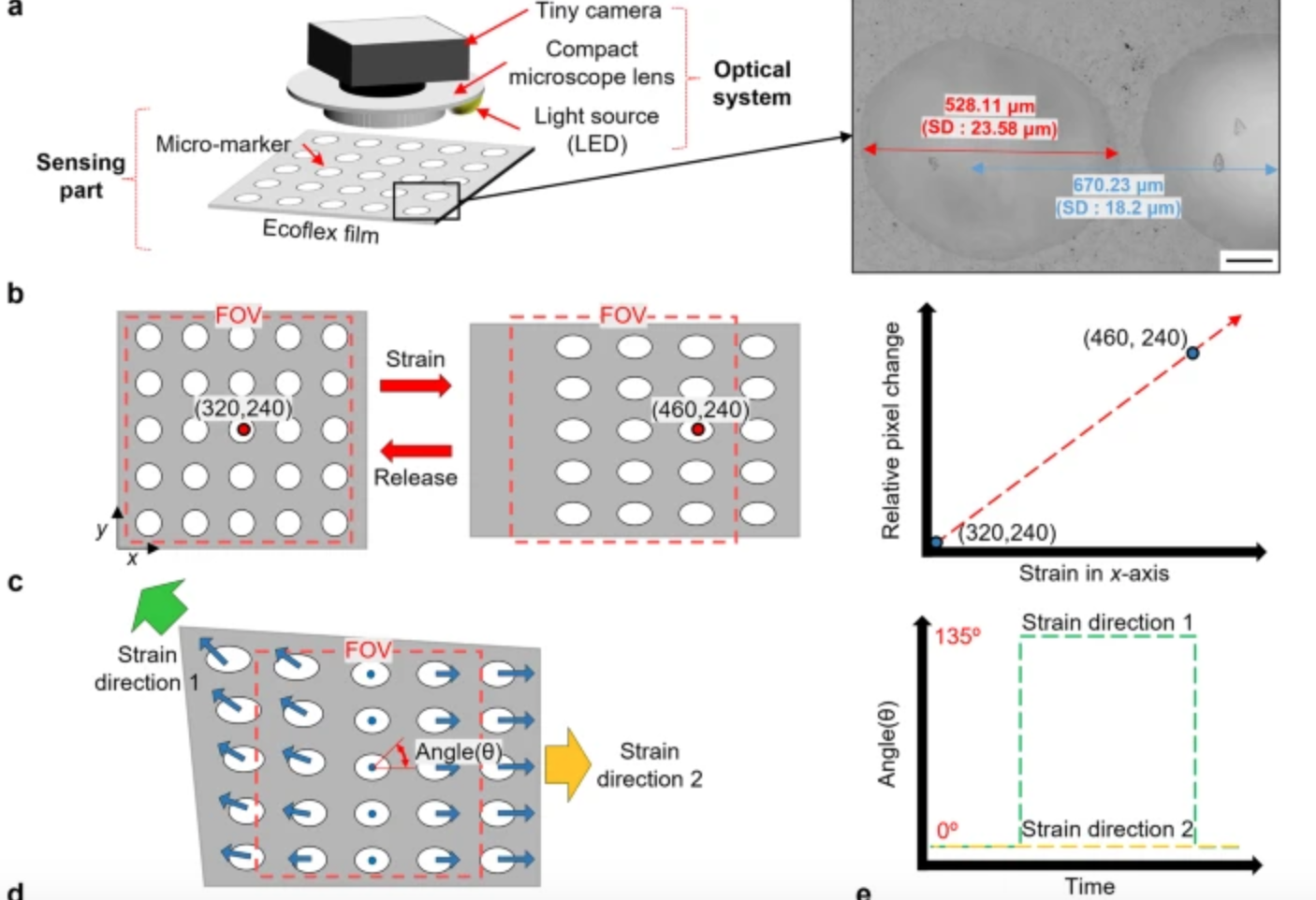POSTECH professor Sung-Min Park and researcher Sunguk Hong have developed optical sensor technology, integrated with computer vision, to track muscle movements in rehab patients with limited mobility.
The sensors are flexible, lightweight, and able to gauge subtle body changes, while overcoming the conventional challenges of soft strain sensors – inadequate durability due to temperature and humidity.
The combined technologies enable the analysis of microscale optical patterns, sensing changes, and are not reliant on electrical signals, like conventional sensors.
The CVOS sensors detect three-axial rotational movements through real-time multiaxial strain mapping. This enables precise recognition of various intricate motions through a single sensor, with AI correction of error factors during signal detection.
